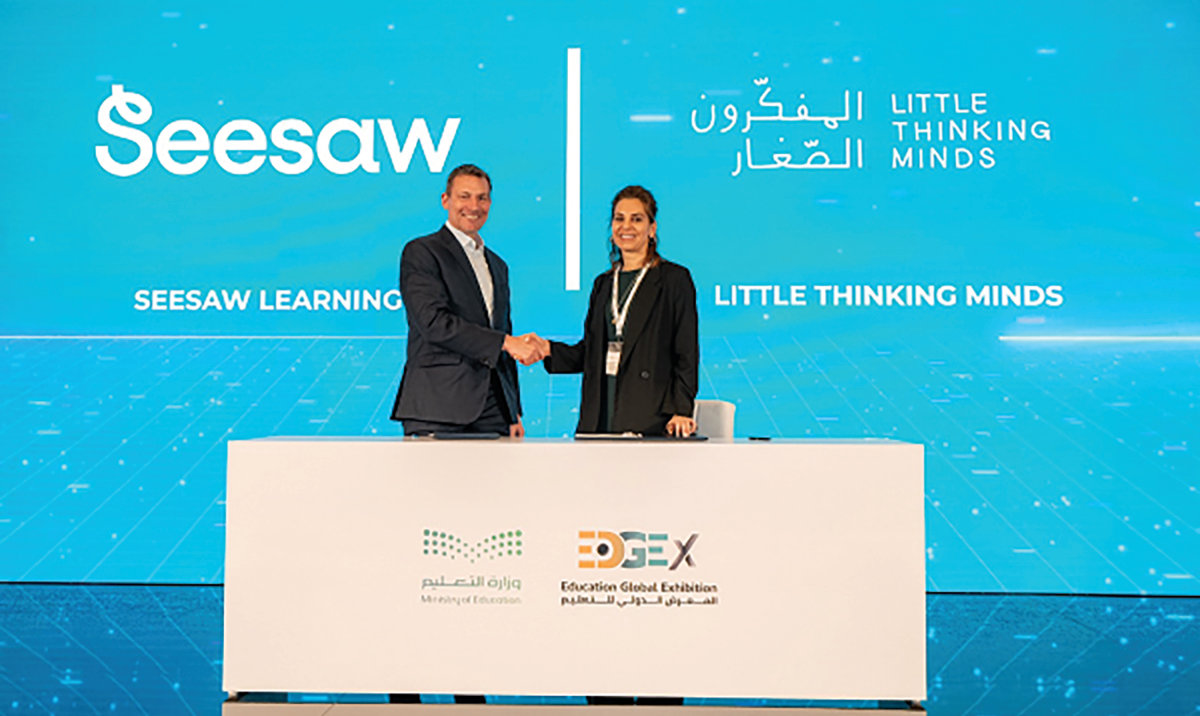RIYADH: Startup investment in the Middle East and North Africa region fell sharply in March, with total funding declining 76 percent month on month to $127.5 million across 28 deals, down from $530 million in February.
The decline — observed even after excluding debt financing from both months — reflects broader economic uncertainty stemming from ongoing US trade tensions with global partners.
These geopolitical developments have impacted key regional economies, contributing to a 50 percent year-on-year drop in both the volume and value of investments, according to Wamda’s monthly report.
February’s funding surge was largely driven by major startup events, including Saudi Arabia’s flagship LEAP conference.
UAE tops regional funding
The UAE retained its lead in regional startup funding, securing $104.4 million across 14 transactions. Egypt ranked second with $11.6 million from four deals, followed by Saudi Arabia, which raised $8 million through five startups.
Despite the March slowdown, the first quarter saw robust activity, with MENA startups raising $1.5 billion — marking a 244 percent increase compared to the same period in 2024.
Fintech leads Q1 surge, SaaS absent for 2nd month
Fintech remained the dominant sector, attracting $82.5 million across 10 deals in March alone. The sector accounted for over $1 billion in the first quarter funding across 36 startups, cementing its role as a top investment magnet since 2021.
Healthtech and artificial intelligence followed, raising $16 million and $14 million respectively. In contrast, software-as-a-service, or SaaS, startups failed to secure funding for the second consecutive month.
Early-stage companies captured 70 percent of March funding, amounting to $58 million, while later-stage firms raised $46 million, including three Series B rounds.
Debt financing also declined sharply, comprising just 12.5 percent of total monthly funding. Business-to-business startups continued to attract the bulk of investor attention, raising $97 million, while business-to-consumer ventures brought in $24 million.
Gender funding gap widens; investor caution rises
No female-founded startups received funding in March — a significant setback for gender equity in the region’s entrepreneurial landscape.
Male-founded ventures secured $113 million, with the remainder going to mixed-gender founding teams.

Founded in 2022 by Abdullah Al-Lahuo and Salem Al-Badawi, Sadq offers legally compliant digital solutions for secure document management. (Supplied)
The broader investment slowdown is expected to prompt increased investor caution, with a tilt toward later-stage startups that have demonstrated resilience amid macroeconomic headwinds, Wamda noted.
Sectors tied to global trade — such as logistics, mobility, and e-commerce — may face continued challenges as new alliances and shifting energy dynamics reshape the global economic order. However, adaptable startups could benefit from emerging opportunities, the report added.
Sadq raises $1.5m to expand digital signature platform
Saudi Arabia-based Sadq, a digital signature and document authentication platform, has raised $1.5 million in a pre-Series A round led by X by Unifonic Fund. Other investors, including strategic backer Unifonic, also participated.
Founded in 2022 by Abdullah Al-Lahuo and Salem Al-Badawi, Sadq offers legally compliant digital solutions for secure document management and plans to use the funding to expand its presence across Saudi institutions.

Seesaw, established in 2007, develops AI-powered learning tools and digital curricula. (Supplied)
TruBuild secures $1m to fuel AI-powered contech expansion
Saudi construction tech startup TruBuild has raised $1 million in a seed round led by Wa’ed Ventures and Dar Ventures, with support from Plug & Play Ventures, OQAL, Taz Investment, and several angel investors.
Founded in 2023 by Bisrat Degefa and Sari Sabban, TruBuild uses AI to reduce inefficiencies and improve collaboration in construction projects. The funding will support product development and expansion within and beyond Saudi Arabia.
Seesaw acquires Little Thinking Minds
US-based edtech company Seesaw has acquired Jordan’s Little Thinking Minds for an undisclosed sum.
Founded in 2004 by Lamia Tabbaa and Rama Kayyali, Little Thinking Minds specializes in Arabic literacy tools and is one of the region’s prominent female-founded edtech startups.
Seesaw, established in 2007, develops AI-powered learning tools and digital curricula. The acquisition will integrate Seesaw’s interactive tech with Little Thinking Minds’ Arabic language expertise.
Dubizzle Group acquires Property Monitor
Dubai-based classifieds platform Dubizzle Group has acquired UAE’s Property Monitor, a real estate analytics firm, for an undisclosed amount.
Founded in 2014, Property Monitor provides valuation and market intelligence services for real estate stakeholders. The acquisition supports Dubizzle’s strategy to expand offerings across its platforms Bayut and dubizzle. It follows Dubizzle’s February acquisition of Egypt’s online car marketplace Hatla2ee.
DPI takes over Egypt’s Nclude fintech fund management
UK-based private equity firm Development Partners International has assumed management of Egypt’s fintech fund Nclude, previously overseen by Global Ventures.
Launched in 2022, Nclude closed a $110 million round that September and has invested $28 million across nine startups, including Partment, Khazna, and Paymob.
DPI will advise through a dedicated Egypt-based team. With nearly $850 million invested in Egypt over the past decade, the firm brings significant experience in supporting digital transformation.
AIREV receives strategic backing from Venturewave Capital
UAE-based artificial intelligence firm AIREV has secured investment from Ireland’s Venturewave Capital to accelerate the growth of its AI operating system ‘On-Demand.’
The capital will enable AIREV to expand beyond the UAE and Ireland and explore new markets. The investment reinforces its ambition to scale as a leading AI player in the Gulf.
The investment reinforces AIREV’s position to scale as an AI company in the Gulf region.
viAct raises $7.3m Series A to advance industrial AI
Hong Kong-based AI startup viAct has closed a $7.3 million Series A round led by Venturewave Capital, with participation from Singtel Innov8, Korea Investment Partners, and the PolyU Entrepreneurship Investment Fund.
The firm develops AI models for hazard prediction and workforce safety in high-risk sectors. viAct plans to expand its presence in the Middle East, especially Saudi Arabia, and grow its engineering and sustainability teams globally.






















